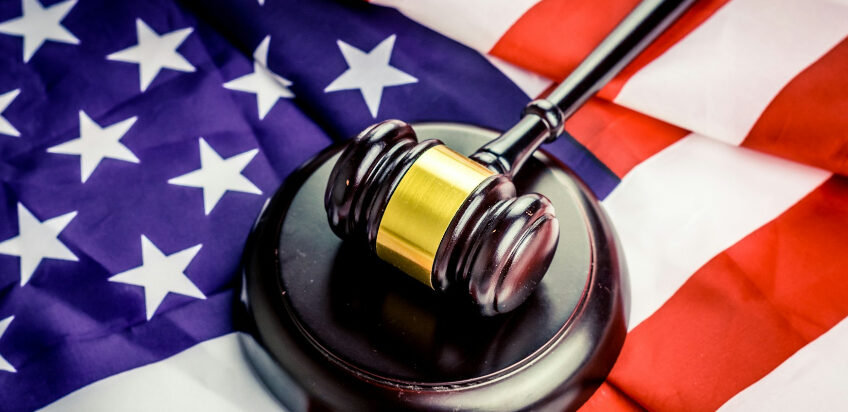In today’s digital age, protecting intellectual property (IP) has become essential for individuals and businesses. Whether you’re an entrepreneur, artist, or inventor, safeguarding your creations is vital to ensure that your hard work isn’t misused or stolen. In New Jersey, as in the rest of the U.S., there are three primary forms of IP protection: trademarks, patents, and copyrights. Each serves a different purpose and provides legal rights to the creators or owners. Here’s what you need to know about protecting your intellectual property in New Jersey.
Trademarks: Protecting Your Brand Identity
A trademark is a recognizable sign, design, or expression that identifies products or services from a specific source. It can include names, logos, slogans, symbols, and even unique colors or sounds that distinguish your brand from competitors.
What Does a Trademark Protect?
Trademarks protect brand identity by preventing others from using similar marks that could confuse consumers. For example, if you own a business in New Jersey and have developed a logo for your company, a trademark ensures that another company cannot use a similar logo that might mislead customers.
How to Obtain a Trademark in New Jersey
To secure trademark protection, you can file at both the state and federal levels. In New Jersey, you can register your trademark with the New Jersey Division of Revenue. This offers protection within the state. However, if you want nationwide protection, you must file with the United States Patent and Trademark Office (USPTO). The federal registration process typically offers broader protection and legal advantages if your business expands beyond state lines.
Maintaining a Trademark
Trademarks last as long as they are used in commerce. However, registered trademarks must be renewed periodically, and failure to maintain your registration can lead to the loss of your legal protections.
Patents: Protecting Inventions and Innovations
A patent grants exclusive rights to an inventor for a specific period, typically 20 years, allowing them to prevent others from making, using, or selling their invention without permission. Patents are essential for protecting new technologies, processes, or products.
What Does a Patent Protect?
Patents protect inventions that are novel, non-obvious, and useful. For instance, if you invent a new type of medical device or an innovative manufacturing process in New Jersey, a patent will ensure that you have the exclusive right to commercialize it.
How to Obtain a Patent in New Jersey
Patents are handled at the federal level through the USPTO. To apply, you must file a detailed patent application that describes your invention, how it works, and why it qualifies for patent protection. The application process can be complex and time-consuming, often requiring the assistance of a patent attorney or agent.
Types of Patents
- Utility Patents: These protect new and useful inventions or discoveries (e.g., machines, processes, or compositions of matter).
- Design Patents: These protect the ornamental design of a functional item.
- Plant Patents: These protect new and distinct plant varieties that are asexually reproduced.
Maintaining a Patent
Once granted, patents must be maintained through periodic fees to the USPTO. Failure to pay these fees can result in the loss of patent protection before the 20-year term expires.
Copyrights: Protecting Creative Works
Copyright protection applies to original works of authorship, such as books, music, films, software, and artwork. Unlike patents and trademarks, copyright protection is automatic upon the creation of the work, though registration offers significant legal advantages.
What Does Copyright Protect?
Copyrights protect the expression of ideas, not the ideas themselves. For example, if you write a book or create a piece of music in New Jersey, copyright ensures that no one can reproduce, distribute, or perform your work without your permission.
How to Obtain a Copyright in New Jersey
While copyright protection is automatic as soon as a work is created, registering with the U.S. Copyright Office provides additional legal benefits, including the ability to file a lawsuit for infringement and recover statutory damages. In New Jersey, you can file for copyright protection through the federal Copyright Office, which governs all U.S. copyrights.
Fair Use Doctrine
It’s important to understand that certain uses of copyrighted material are allowed under the fair use doctrine. This includes uses for criticism, commentary, news reporting, teaching, and research. However, what qualifies as fair use can be complex and often depends on the specific circumstances.
Maintaining Copyright Protection
Copyright protection lasts for the lifetime of the creator plus 70 years. For works made for hire or corporate works, the duration is 95 years from publication or 120 years from creation, whichever is shorter.
Protecting Your Intellectual Property in New Jersey: Best Practices
Protecting your intellectual property requires a proactive approach. Here are a few best practices to keep in mind:
- Register Your IP: While some protections (like copyright) are automatic, registration strengthens your legal position if you ever need to defend your rights in court. This is particularly important for patents and trademarks.
- Monitor for Infringement: Regularly monitor the market to ensure that others aren’t infringing on your IP rights. If you discover infringement, act quickly by sending a cease-and-desist letter or pursuing legal action if necessary.
- Work with an Attorney: IP law can be complex, and each type of protection requires a different approach. Working with an intellectual property attorney in New Jersey can help you navigate the registration process and enforce your rights if needed.
Conclusion
In New Jersey, protecting your intellectual property—whether through trademarks, patents, or copyrights—is essential for securing your creative and business assets. By understanding the differences between these protections and following the necessary steps for registration and enforcement, you can safeguard your innovations, brand identity, and creative works, ensuring that your hard work is protected under the law.
